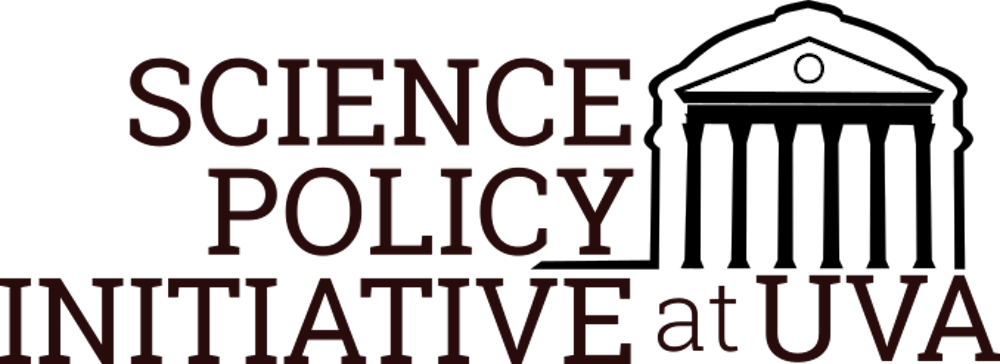In the weeks leading up to the 2018 midterm elections, the Science Policy Initiative at the University and Cville Comm-UNI-ty — a nonprofit composed of Charlottesville community members promoting STEM literacy — have asked for scientific issues to be on the minds of citizens. A press release published in Charlottesville Tomorrow by the organizations urged candidates and people in the Charlottesville community, the state and the nation to consider science policies when designing their platforms and casting their votes.
Founded early in 2017, the Science Policy Initiative is composed mostly of graduate students in the Engineering School, the biomedical sciences, physics, chemistry and biology. It serves as a resource for students thinking of pursuing a career in science policy after graduation, as well as a means of raising awareness for the importance of scientific research in everyday life.
The SPI promotes awareness through hosting different programs for students, including seminar series, career panels and symposiums focused on engaging the University and the wider Charlottesville community as a whole.
“We are interested in both how to reset policy that governs and regulates scientific research and research funding,” SPI Community Outreach Chair Matthew Diasio said. “We are also interested in how to better incorporate scientific evidence into the general policy making process.”
As a part of the National Science Policy Network, an organization dedicated to supporting students and young professionals in science, engineering and politics, SPI was awarded the Advocating for State-Level Science Policy microgrant in the fall of 2018. Their election activities — funded by another grant through the Bipartisan Civic Engagement Initiative — included hosting their own debate, which did not take place due to candidates’ busy schedules.
Instead, for the Virginia Fifth Congressional District Debate held in Garrett Hall in late September, SPI submitted questions members had hoped to ask. Ultimately, the press release stemmed from these questions and issues SPI wanted candidates to address.
“We want people to get involved in elections and to show them how science matters in the government and how research matters to our local community,” Diasio said.
SPI then partnered with Cville Comm-UNI-ty to gauge Charlottesville’s political climate regarding science policies at the federal, state and local levels. Utilizing the list of 10 questions for House, Senate and gubernatorial candidates proposed by the organization Science Debate as a starting point, SPI and Cville Comm-UNI-ty surveyed their members and the Charlottesville community on multiple scientific and technological issues. The questions generating the most interest were organized into a memorandum summarizing the major topics of interest and offering non-partisan suggestions to Fifth District candidates.
According to Cville Comm-UNI-ty Executive Director Elizabeth Hoffman, the goal of the memorandum — and the overarching objective of Cville Comm-UNI-ty and SPI — was to urge voters to examine candidate views on research and the scientific sides of policies aimed at societal concerns.
“The more people who are aware why science is important, the more that will consider that when looking at politicians’ platform and when they are voting,” Hoffman said. “People should look at how candidates incorporate science and evidence-based policies into their actions they want to get done if elected.”
Specifically, the press release focused on federal research funding, health disparities, immigration and science and the environment. Federal grants resulted in millions of dollars of economic growth within Virginia in 2017, a trend the memorandum urges candidates to maintain. SPI and Cville Comm-UNI-ty’s statement recognized the lack of healthcare access for rural, low-income and minority people and encourages candidates to address this issue.
Additionally, the memorandum proposed the difficulties many international STEM graduate students face relating to visa restrictions and hopes candidates will resolve issues regarding immigration. Finally, SPI and Cville Comm-UNI-ty asked candidates to support environmental and community well-being — advising that industrial projects such as the Atlantic Coast Pipeline, which create jobs and perpetuate economic growth, will disturb natural habitats.
“The hope is that we can make more candidates and people cognizant of the importance of science and issues related to written policy for healthcare, technology and how we treat the environment,” Diasio said.
While any impact the joint memorandum had will not be apparent until the polls close, both SPI and Cville Comm-UNI-ty hope to continue facilitating conversations concerning local and state projects and laws with scientific components. The two will partner on additional initiatives in the coming months in an effort to reach those outside of the science and University communities.
“Moving forward, we hope to keep engaging more community members,” Hoffman said. “We want to keep engaging more community members and hope to reach people that wouldn’t necessarily be coming to science things. We want to get a more diverse group attending out events.”
Diasio affirmed Hoffman’s aspirations and also emphasized the role that students have in achieving these goals.
“On our end as grad students, we can start reaching out in ways that are useful to people and doesn’t seem distant,” Diasio said. “We live here every day. And we’re scientists, and we want to humanize that and also be responsive to the needs in our communities.”







